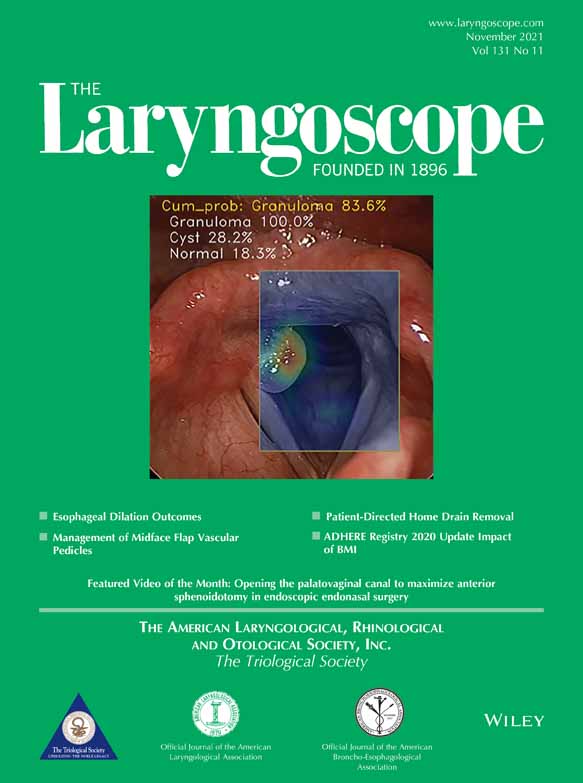Laryngopharyngeal Reflux Disease is More Severe in Obese Patients: A Prospective Multicenter Study
Editor's Note: This Manuscript was accepted for publication on July 25, 2020.
s.h. and s.s. contributed equally to this work and should be regarded as joint last authors.
The authors have no funding, financial relationships, or conflicts of interest to disclose.
Abstract
Objectives/Hypothesis
To investigate whether there is an impact of obesity and overweight on the clinical findings and therapeutic responses of patients with laryngopharyngeal reflux (LPR).
Study Design
Prospective uncontrolled.
Methods
Patients with LPR-related symptoms and positive LPR diagnosis at the hypopharyngeal-esophageal multichannel intraluminal impedance pH-monitoring (HEMII-pH) were recruited from December 2017 to December 2020. Patients were treated with a combination of diet, proton pump inhibitors, and alginate for 3 to 6 months. The following outcomes were studied according to the weight of patients: HEMII-pH, gastrointestinal endoscopy features, symptoms, findings, and therapeutic response.
Results
A total of 262 patients completed the study, accounting for 134, 85, and 43 patients with normal weight (body mass index [BMI] <25), overweight (BMI = 25–29.99), and obesity (BMI >30). Obese patients reported significant higher prevalence of gastroesophageal reflux disease (GERD), acid LPR, and a more severe LPR disease regarding the number of pharyngeal reflux events, reflux symptom score (RSS), and reflux sign assessment (RSA). RSS and RSA scores significantly improved from baseline to 3-month posttreatment irrespective of the patient weight group. Symptoms and signs continued to improve from 3 to 6-month posttreatment only in patients with a normal weight.
Conclusion
Obesity is associated with a more severe LPR disease and a higher proportion of GERD and acid LPR. Obese LPR patients may require more frequently PPI-therapy regarding the higher prevalence of GERD.
Level of Evidence
3 Laryngoscope, 131:E2742–E2748, 2021




